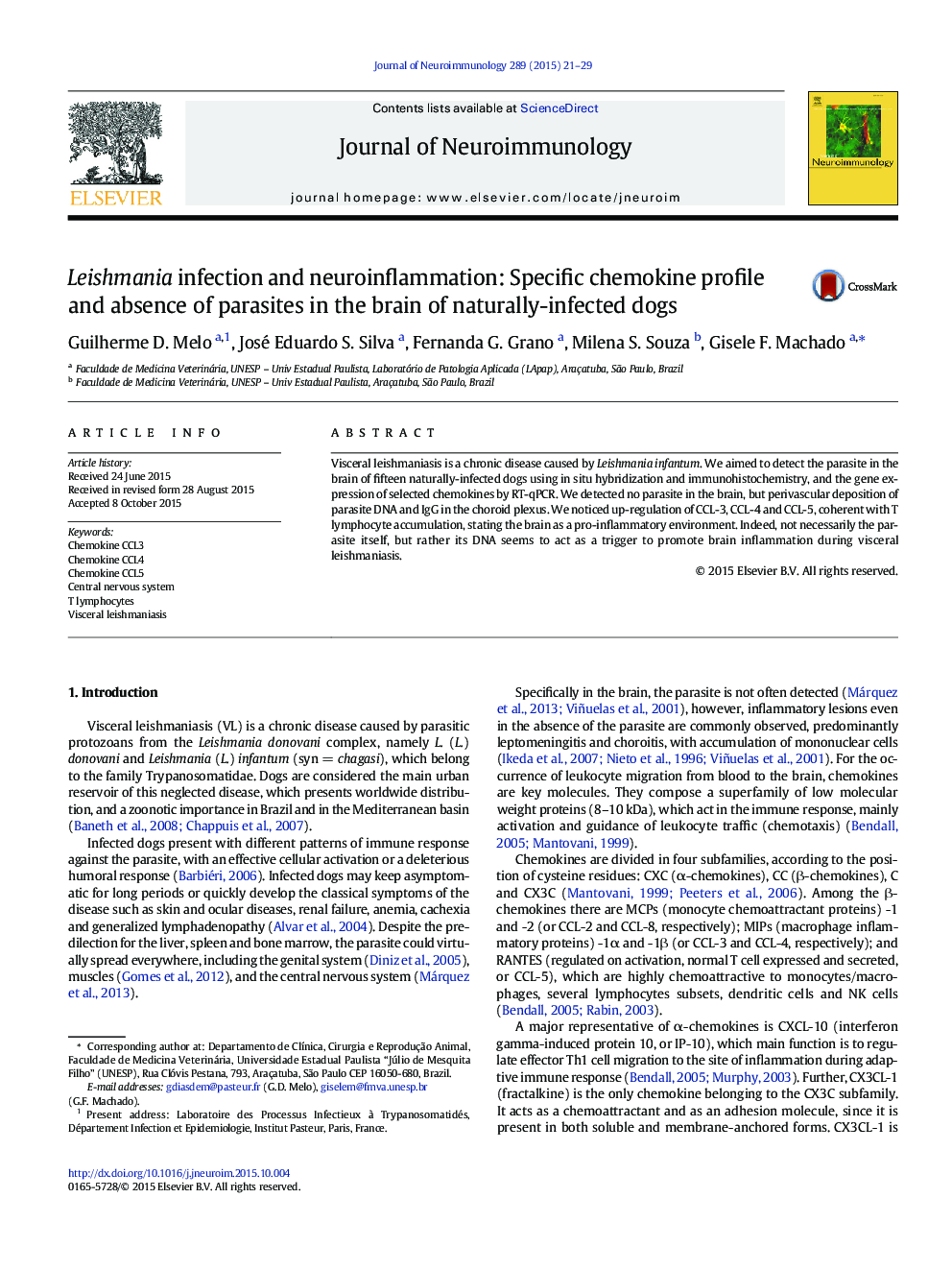| کد مقاله | کد نشریه | سال انتشار | مقاله انگلیسی | نسخه تمام متن |
|---|---|---|---|---|
| 3063869 | 1580385 | 2015 | 9 صفحه PDF | دانلود رایگان |
• Dogs with visceral leishmaniasis present signs of brain inflammation.
• There is perivascular deposition of Leishmania DNA in the choroid plexus.
• CCL-3, CCL-4 and CCL-5 are overexpressed in the brain of infected dogs.
• The expression of CXCL-10 is up-regulated only in a subpopulation of infected dogs.
• The parasite DNA seems to act as a trigger to promote brain inflammation.
Visceral leishmaniasis is a chronic disease caused by Leishmania infantum. We aimed to detect the parasite in the brain of fifteen naturally-infected dogs using in situ hybridization and immunohistochemistry, and the gene expression of selected chemokines by RT-qPCR. We detected no parasite in the brain, but perivascular deposition of parasite DNA and IgG in the choroid plexus. We noticed up-regulation of CCL-3, CCL-4 and CCL-5, coherent with T lymphocyte accumulation, stating the brain as a pro-inflammatory environment. Indeed, not necessarily the parasite itself, but rather its DNA seems to act as a trigger to promote brain inflammation during visceral leishmaniasis.
Figure optionsDownload high-quality image (88 K)Download as PowerPoint slide
Journal: Journal of Neuroimmunology - Volume 289, 15 December 2015, Pages 21–29
